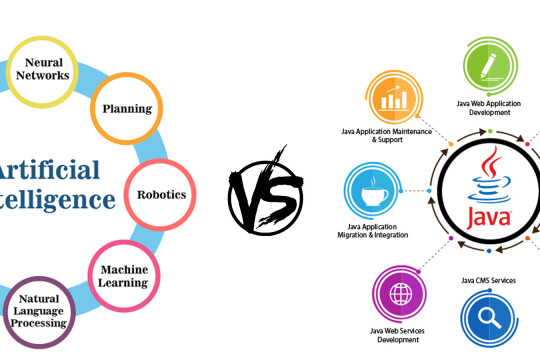Remote Work refers to a work arrangement where employees perform their job duties outside of a traditional office setting, typically from home or any other location. With advancements in technology, remote work has become increasingly feasible, allowing employees to collaborate, communicate, and complete tasks using digital tools.
The shift towards remote work has transformed traditional workplaces, pushing companies to adopt tools and technologies that foster collaboration, productivity, and flexibility. As businesses evolve, the future of remote work hinges on innovative solutions designed to meet the demands of a distributed workforce.
In this blog, we explore the cutting-edge tools and technologies that are redefining productivity in the remote and hybrid workplace era.
Benefits of Remote Work:
Flexibility:
- Employees can manage their work hours to better suit their personal schedules.
- Provides flexibility in working from anywhere, promoting a better work-life balance.
Increased Productivity:
- Many find they are more productive in a remote setting due to fewer distractions and the ability to work in a comfortable environment.
Cost Savings:
- Reduces costs associated with commuting, work-related travel, and even office supplies.
Access to a Broader Talent Pool:
- Companies can hire talent from anywhere, not limited by geographical location.
Improved Employee Satisfaction and Retention:
- Flexibility and autonomy can lead to higher job satisfaction, reducing turnover rates.
Reduced Commuting Time:
- Eliminates long commutes, allowing more time for personal activities and reducing stress.
Environmental Impact:
- Decreases the carbon footprint by reducing travel and energy usage for office spaces.
Better Work-Life Balance:
- Employees can create a work environment tailored to their needs, promoting better health and well-being.
Cost-Efficiency for Businesses:
- Reduced need for office space and utilities, potentially lowering operational costs.
Enhanced Collaboration Tools:
- Encourages the use of advanced collaboration tools and technologies, improving communication and workflow management.
1. Advanced Collaboration Tools
Collaboration tools have become the backbone of remote work. Modern solutions go beyond video calls and chat platforms to offer integrated features like project management, file sharing, and real-time editing. Examples include:
Slack: Enhances team communication through channels, integrations, and automation.
Microsoft Teams: Combines messaging, file sharing, and video conferencing.
Notion: A versatile tool for managing projects, documents, and team tasks in one place.
2. artificial intelligence (AI) for Productivity
AI-powered tools are streamlining workflows and boosting productivity. They help automate repetitive tasks, analyze data, and even assist with scheduling. Popular AI tools include:
Otter.ai: Transcribes meetings in real-time, ensuring you never miss key points.
Grammarly: Enhances written communication with grammar and tone suggestions.
Asana with AI: Provides smart suggestions for task prioritization and project planning.
3. Virtual and Augmented Reality (VR/AR)
Virtual reality and augmented reality are bridging the gap between physical and digital workspaces. Companies use VR/AR for:
Virtual team meetings and brainstorming sessions.
Interactive product demos and training.
Virtual coworking spaces like Spatial and VirBELA.
These technologies enhance collaboration and make remote interactions more immersive.
4. Cloud Computing and Data Access
Cloud computing ensures seamless data access and storage for remote teams. With tools like Google Drive, Dropbox, and OneDrive, employees can:
Access files anytime, anywhere.
Collaborate in real-time without compatibility issues.
Securely back up important data.
5. cybersecurity for Remote Work
With the rise in remote work, cybersecurity is more critical than ever. Tools and practices like:
Virtual Private Networks (VPNs): Secure remote connections.
Multi-factor Authentication (MFA): Adds an extra layer of security.
Endpoint Protection: Safeguards devices used for work.
6. Time Management and Productivity Apps
Managing time effectively is crucial for remote teams. Popular apps include:
Trello: Organizes tasks and workflows visually.
RescueTime: Tracks time spent on various activities and suggests improvements.
Focus@Will: Provides music designed to enhance focus and productivity.
7. The Role of Automation
Automation tools simplify workflows and reduce manual effort. For instance:
Zapier: Automates tasks between apps without coding.
Monday.com: Automates task assignments and progress tracking.
HubSpot: Streamlines marketing, sales, and customer service processes.
8. Virtual Offices and Digital Workspaces
The concept of virtual offices is gaining traction. Platforms like Remo and Gather.town create digital environments where teams can interact, collaborate, and socialize virtually, mimicking a physical office experience.
Conclusion
The future of remote work is bright, driven by innovative tools and technologies that make collaboration seamless and productivity achievable from anywhere. Companies investing in these solutions are better positioned to thrive in a hybrid or fully remote environment.
As the landscape continues to evolve, staying ahead of these trends will be crucial for organizations and professionals alike.

















Comments & Discussion
Join the discussion by logging into your account.